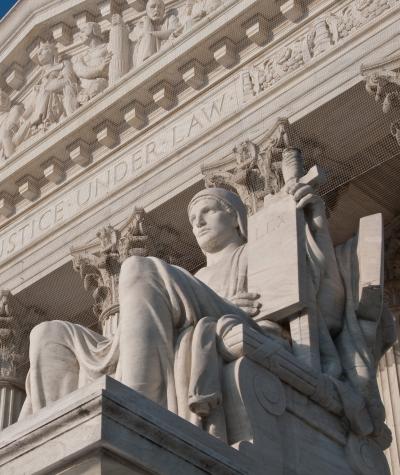In a sign of how widespread concern over the ethics of our nation’s highest court has spread, the Senate Subcommittee on Federal Courts, Oversight, Agency Action, and Federal Rights held a hearing on Supreme Court ethics on June 14th - its second in as many months - focusing on how to ensure an impartial and trustworthy judiciary. The hearing reemphasized how integral public faith and confidence in the Supreme Court are to a functioning democracy.
For the public to have faith in the Supreme Court, the Court must be held to the highest ethical standards – or, at least, some tangible measure of ethical standard. Currently, very few ethics rules govern Supreme Court justices. In fact, as Campaign Legal Center highlighted while testifying before the Committee in May, the Supreme Court’s ethics rules lag decades behind the other branches of government.
For example, one witness during the June hearing, Donald Sherman, the Executive Vice President and Chief Counsel Citizens for Responsibility & Ethics in Washington (CREW), pointed out that if a member of Congress wanted to take a trip paid for by a close friend, the member would have to call their ethics committee to seek approval, then after receiving the approval, would have to publicly disclose the trip as well as who paid for it. If that same offer was extended to a justice of the Supreme Court, unless the trip includes travel paid for by the friend, they do not have to seek approval or publicly disclose the value or details of the rest of the trip.
These clear differences in how the legislative branch and the Supreme Court operate in regard to ethics and disclosure show just how little transparency exists for the justices. The American public has a right to know that Supreme Court justices are acting on behalf of the people that are appointed to serve, not their wealthy friends or their own financial interest. That is why the Court or Congress must take action and create a mechanism for enforcement, not just to promote transparency, but to also ensure accountability and restore public trust.
While many senators have previously questioned the constitutionality of Congress passing legislation requiring the Supreme Court to implement ethics standards, Professor John Sample of the Maurice A. Deane School of Law at Hofstra University testified that Congress has the authority to enact legislation that would help the Supreme Court operate more effectively, and has so since 1789, when it passed the Judiciary Act.
It is critical for the public’s trust in our democratic institutions that the Supreme Court is held to at least the same ethical standards as the other branches of government and lower courts, and that justices are held accountable when they violate those standards. For this reason, it is important that the Senate continues to consider how to best establish effective ethics practices, including practices that ensure impartiality.

